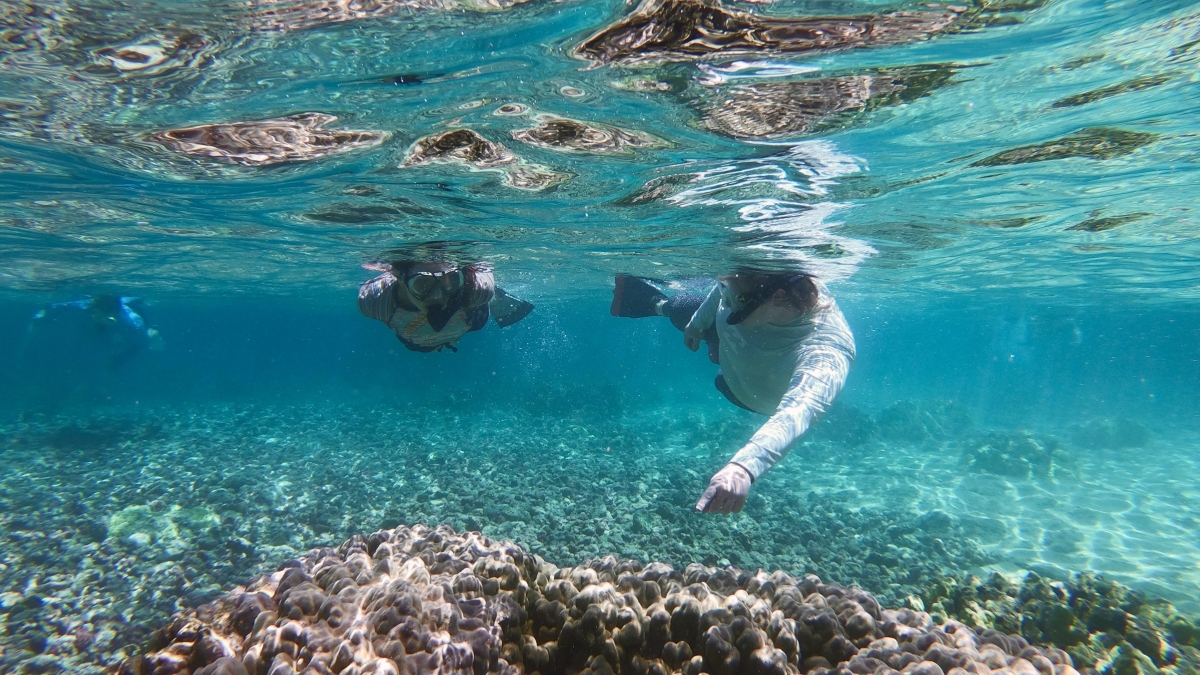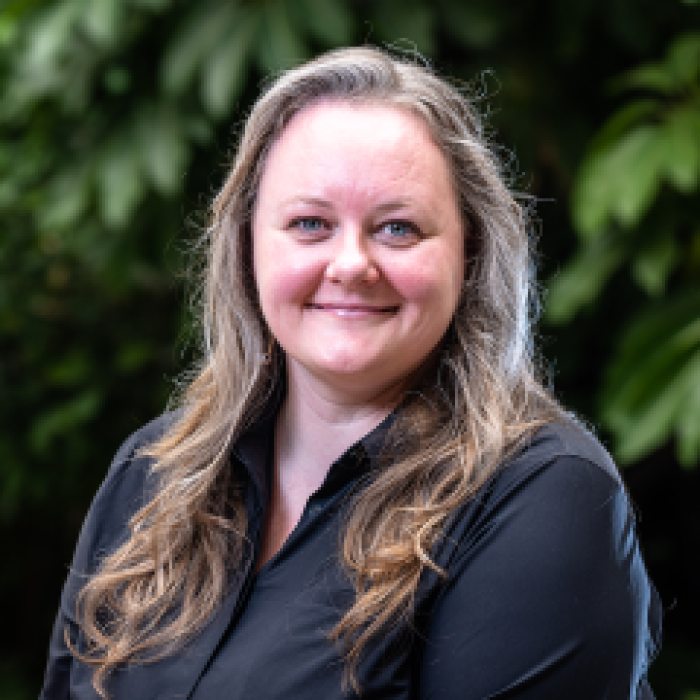Untangling marine data to give coral reefs the best chance for survival

Coral reefs are on the front lines of climate change.
On a global scale, changing ocean chemistry, warming sea temperatures and increased frequency of severe storms all provide significant threats to one of the most biologically diverse and valuable ecosystems on Earth.
But mounting threats from climate change are not coral reefs' only foe. For decades, overfishing, pollution and other human activities like over-tourism have contributed to the stress and degradation of delicate vibrant reefs.
So, given the complex threats — at both local and global scales — what is the best conservation and management plan forward? And how do we give people the right information to make decisions and give corals the best chance for survival?
The answer may already exist, hidden in data.
Marry Donovan
Mary Donovan, an ecological researcher and data scientist at ASU, is using innovative methods to wrangle global and local data in new ways – that haven’t been accessible or usable before – and give local communities new insights to make their coral reefs more resilient to threats.
The work by Donovan, an assistant professor in the School of Geographical Sciences and Urban Planning and the Center for Global Discovery and Conservation Science, empowers coastal communities with the necessary information to make the best conservation and management decisions for their local reefs.
“We are working with the knowledge we've gained from understanding the interactions between local and global human impacts to say: ‘What can people do locally to manage reefs with the idea of resilience in mind,” said Donovan, whose research sites include Hawaii, French Polynesia and the Caribbean. “Can we increase or protect the reef's resilience to these external threats and help them survive?”
For her research, discovery and local impact, Donovan was recently named an Ecological Society of America Early Career Fellow.
The prestigious award is given to leading early-career ecologists, who are succeeding not only from an academic perspective but are putting high importance on communicating their work to the broader field.
“It's one thing just to ask ecological questions that us professors care about and cite, but it's something special to ask those questions in a way that helps guide the conservation and management of our key ecosystems,” said Deron Burkepile, professor of marine biology at the University of California Santa Barbara who was involved in the nomination process.
“Mary's really engaged with the conservation community and making sure that her science really gets translated into conservation and management.”
Asking big questions, drawing big conclusions
Donovan’s research has led to new insights into how interactions between local and global threats affect coral bleaching and coral recovery after bleaching.
Off the coast of the French Polynesian island of Moorea, Donovan’s research has shown that coral reefs that are subject to higher levels of nutrient pollution tend to have more coral bleaching during marine heat waves. And, importantly, the pollution sensitizes the corals to the marine heat waves that happen because of climate change.
Her research brings into focus a new lens of management: how communities can relieve some of the impacts of global stressors, like underwater heatwaves, by managing local stressors, like pollution.
“We need solutions at different scales to answer the big questions,” Donovan said. “We need to understand both fine scale and broad scale change to answer questions that are relevant to management that are broad and always changing.”
At the local level, Donovan for more than a decade has engaged local community groups, fishermen and other organizations in Hawaii to think about how the science she produces can impact the decisions that the people of Hawaii make, and how they can best conserve and restore their local resources.
The Donovan lab and looking forward
Donovan and her lab — a team of nearly a dozen undergraduate, graduate and postdoctoral ecologists, marine biologists and data scientists — continue the critical work necessary to improve the resilience of coral reefs, hand-in-hand with conservation decision-makers.
For Donovan, while the recognition from the Ecological Society of America is a “huge honor,” she said she continues to gain inspiration for her research from her students and the impact that they are working to make together.
“Everything I do now is about my students and mentees. It's not just about me, but it's about building the future,” Donovan said. “In thinking about climate change, and as educators, bringing those two things together, we have always to be preparing the next generation.”
Top image: Members of the Donovan Lab examine coral reef ecosystems off the coast of Hawaii. Photo courtesy of Mary Donovan.
More Environment and sustainability

From environmental storytelling to hydroponics, student cohort crafts solutions for a better future
A select group of students from Arizona State University's College of Global Futures, a unit within the Julie Ann Wrigley Global Futures Laboratory, is laying the foundation to drive change…

2 ASU faculty elected as AAAS Fellows
Two outstanding Arizona State University faculty spanning the physical sciences, psychological sciences and science policy have been named Fellows of the American Association for the Advancement of…

Homes for songbirds: Protecting Lucy’s warblers in the urban desert
Each spring, tiny Lucy’s warblers, with their soft gray plumage and rusty crown, return to the Arizona desert, flitting through the mesquite branches in search of safe places to nest.But as urban…






